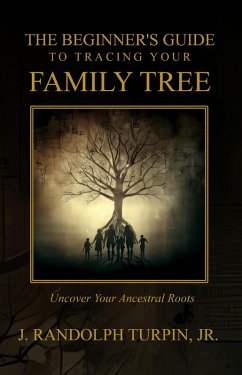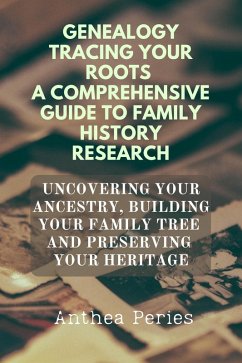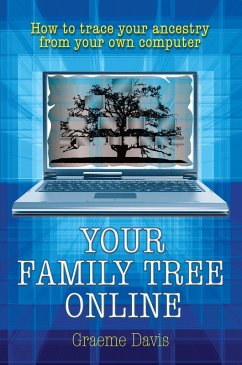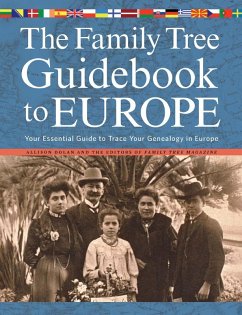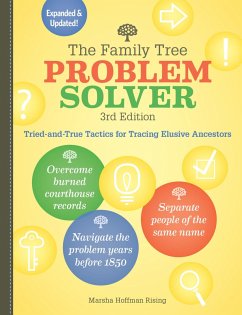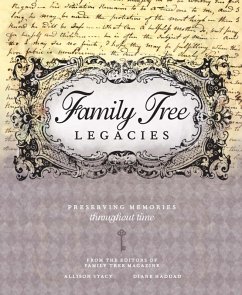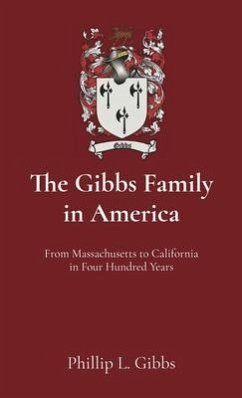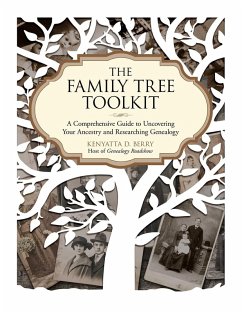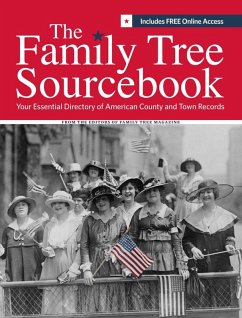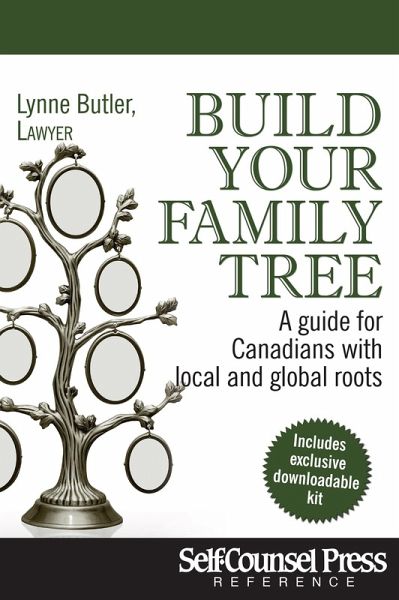
Build Your Family Tree (eBook, ePUB)
A Guide For Canadians With Local And Global Roots

PAYBACK Punkte
3 °P sammeln!
Take your geneaology research to the next level by completing your ancestral story with historical will and probate records. Often, when you research your family tree, you can find only basic facts about ancestors, such as birth, marriage, and death dates. Sometimes, you can figure out a bit more from these records such as their religion, occupation, and names of some other family members. While all of these facts are crucial to your research, they do not paint much of a picture of your family members as people. For those who want to dig deeper and really get to know their ancestors, Build You...
Take your geneaology research to the next level by completing your ancestral story with historical will and probate records. Often, when you research your family tree, you can find only basic facts about ancestors, such as birth, marriage, and death dates. Sometimes, you can figure out a bit more from these records such as their religion, occupation, and names of some other family members. While all of these facts are crucial to your research, they do not paint much of a picture of your family members as people. For those who want to dig deeper and really get to know their ancestors, Build Your Family Tree explains how a will or probate record can offer a much more robust image of lives lived and legacies left. Wills are underused in genealogy research. This may be because many family genealogists use primarily online sources for research and most wills are not found online; it could also be because the documents are usually in old, unfamiliar, handwritten script and are not easy to read. With a little work, you could uncover some surprises or a treasure trove of information. Even genealogy enthusiasts who are willing to look for wills may not fully appreciate just how useful probate and related records can be. In this book you will find an explanation of what sorts of probate records exist and where to find them. You will find definitions of the terminology used in probate records, including latin words and phrases and legal terms that are common to this type of resource. Once you know what is in a physical archive and how to view those records, you are able to take your information about your ancestors to a new level. The story of your family could be different than you imagined. Are you ready to find out how?
Dieser Download kann aus rechtlichen Gründen nur mit Rechnungsadresse in A, D ausgeliefert werden.





